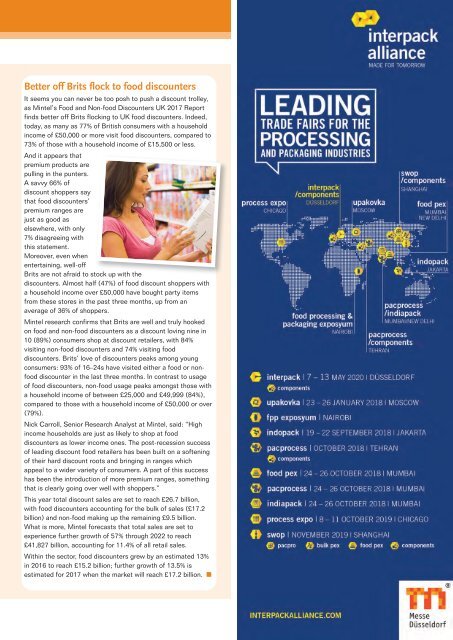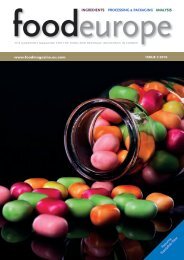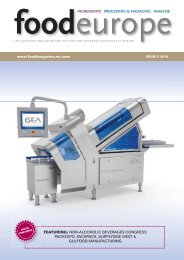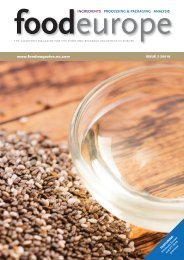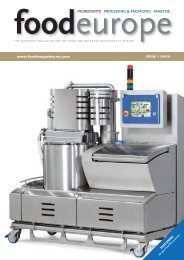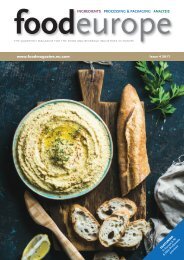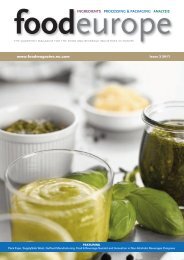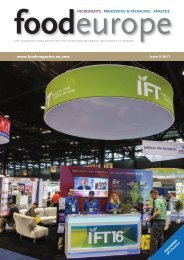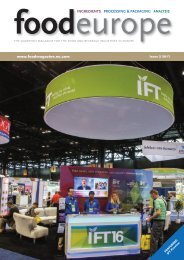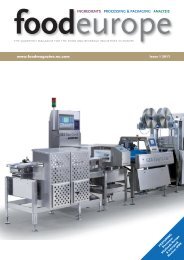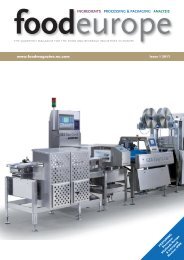Issue_4_2017
Create successful ePaper yourself
Turn your PDF publications into a flip-book with our unique Google optimized e-Paper software.
Better off Brits flock to food discounters<br />
It seems you can never be too posh to push a discount trolley,<br />
as Mintel’s Food and Non-food Discounters UK <strong>2017</strong> Report<br />
finds better off Brits flocking to UK food discounters. Indeed,<br />
today, as many as 77% of British consumers with a household<br />
income of £50,000 or more visit food discounters, compared to<br />
73% of those with a household income of £15,500 or less.<br />
And it appears that<br />
premium products are<br />
pulling in the punters.<br />
A savvy 66% of<br />
discount shoppers say<br />
that food discounters’<br />
premium ranges are<br />
just as good as<br />
elsewhere, with only<br />
7% disagreeing with<br />
this statement.<br />
Moreover, even when<br />
entertaining, well-off<br />
Brits are not afraid to stock up with the<br />
discounters. Almost half (47%) of food discount shoppers with<br />
a household income over £50,000 have bought party items<br />
from these stores in the past three months, up from an<br />
average of 36% of shoppers.<br />
Mintel research confirms that Brits are well and truly hooked<br />
on food and non-food discounters as a discount loving nine in<br />
10 (89%) consumers shop at discount retailers, with 84%<br />
visiting non-food discounters and 74% visiting food<br />
discounters. Brits’ love of discounters peaks among young<br />
consumers: 93% of 16–24s have visited either a food or nonfood<br />
discounter in the last three months. In contrast to usage<br />
of food discounters, non-food usage peaks amongst those with<br />
a household income of between £25,000 and £49,999 (84%),<br />
compared to those with a household income of £50,000 or over<br />
(79%).<br />
Nick Carroll, Senior Research Analyst at Mintel, said: “High<br />
income households are just as likely to shop at food<br />
discounters as lower income ones. The post-recession success<br />
of leading discount food retailers has been built on a softening<br />
of their hard discount roots and bringing in ranges which<br />
appeal to a wider variety of consumers. A part of this success<br />
has been the introduction of more premium ranges, something<br />
that is clearly going over well with shoppers.”<br />
This year total discount sales are set to reach £26.7 billion,<br />
with food discounters accounting for the bulk of sales (£17.2<br />
billion) and non-food making up the remaining £9.5 billion.<br />
What is more, Mintel forecasts that total sales are set to<br />
experience further growth of 57% through 2022 to reach<br />
£41,827 billion, accounting for 11.4% of all retail sales.<br />
Within the sector, food discounters grew by an estimated 13%<br />
in 2016 to reach £15.2 billion; further growth of 13.5% is<br />
estimated for <strong>2017</strong> when the market will reach £17.2 billion. ■


